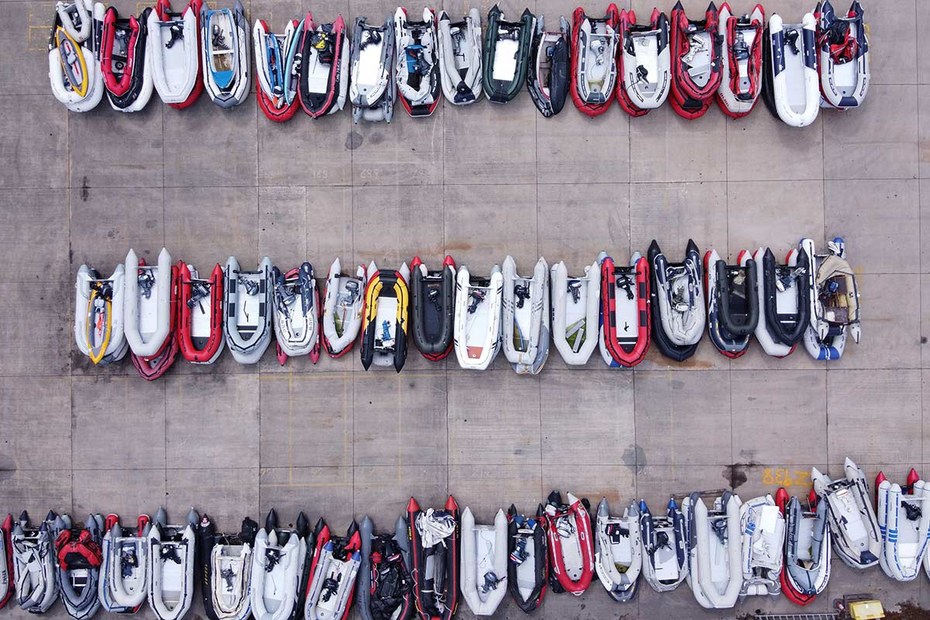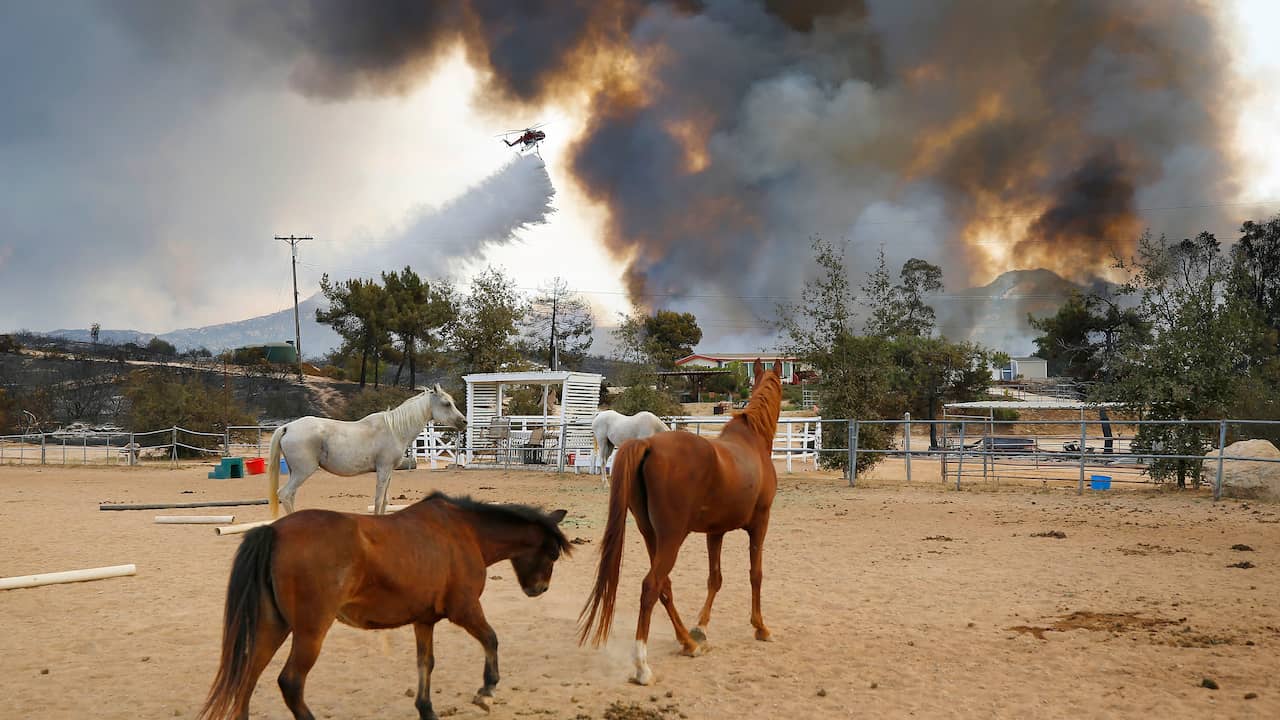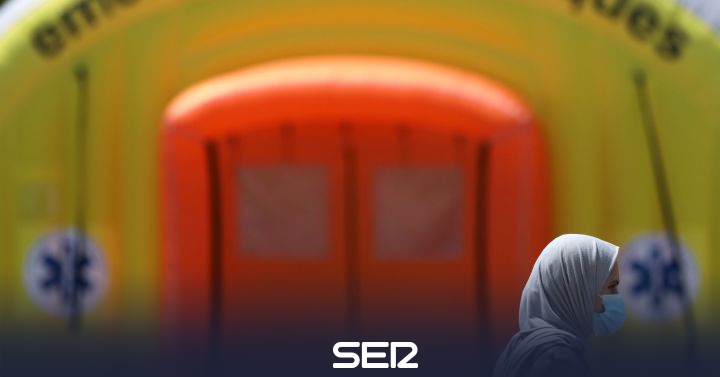We walk on the palms of fate. And we don’t know what is written ”, that is the last sentence that Abdulfatah Hamdallah, called Wajdi, published on his Facebook page. He wrote it in June, at the beginning of the summer when his hopes for asylum in France were dashed. Shortly after the rejection of his application, he apparently made the decision to give it a try in England. And get there by boat. Here, in Calais or Dunkerque, many have already managed to get to Great Britain this way.
If you have money, you can pay a smuggler £ 3,000 for a place on an inflatable boat. But Abdulfatah Hamdallah owned nothing. He came from West Kordofan, a southern federal state in Sudan, and was also one of the poorest among the transit migrants on the English Channel. On the evening of August 18, he met a cousin in Calais who had also fled West Kordofan. He was to tell later that Abdulfatah had told him that he would see him “on the other side”. He’ll be in England, across the Dover Strait, which is a good 30 kilometers wide.
Rowing with a spade
What then happened that night had little to do with the “palms of fate”. Abdulfatah, who couldn’t swim, tried to cross the canal with a friend in a tiny inflatable rubber boat. Instead of paddling, they had spades for rowing, which was quite common among those who organized crossings. They didn’t stand a chance: suddenly the boat lost air and capsized. The friend was able to save himself to the bank, where he was taken to the hospital with signs of hypothermia. Abdulfatah Hamdallah’s body was found early that morning on Sangatte Beach, ten kilometers west of Calais. On the evening of the same day, around 60 migrants and some French supporters gathered near a park in Calais to commemorate the deceased. A little later, the funeral took place – also in Calais, because it seemed impossible to transfer the body to Sudan during Corona times. More than 150 members of the Sudanese community carried Abdulfatah to their grave in a brown wooden coffin. British newspapers quoted two of them. The first called the dead “our friend”, the other reported that he had known about the risky plan to get to England without being able to swim.
refugees When the EU was hit by the corona pandemic at the end of February, around 721,000 people in the 27 member states had applied for asylum for the first time or a follow-up application – eleven percent more than in 2018. Most of the applicants got by Syria (78,545), Afghanistan (59,150), Venezuela (45,400) and Iraq (35,170). The number of refugees who had sought protection in the EU since 2015 was 2.72 million people at the time.
Distribution of applicants to selected EU countries at the beginning of 2020:
Belgium 27,460
Bulgaria 2,150
Germany 165,600
Czech Republic 1.915
France 128,900
Estonia 105
Greece 77,300
Spain 117,795
Netherlands 25.195
Applicants for a thousand inhabitants:
Cyprus 11.5
Greece 7.2
Luxembourg 3.7
Germany 2.0
–
Over time, some details about the life of the young Sudanese became known. It was learned that he had fled Sudan in 2014, had spent two years with an older brother in Libya before crossing the Mediterranean and coming to France via Italy. A common route that is mentioned again and again on the English Channel. Anyone who survived it does not shy away from warnings that the passage to England via the most heavily frequented shipping lane in the world is also life-threatening. And anyway: what alternative was there? Aid organizations and human rights lawyers had repeatedly called for a safe access route to get to the UK and apply for asylum there – in vain.
It was at the end of 2018 when France and Great Britain first became aware of the fact that refugees from Calais and Dunkerque were heading for the English coast in mostly unseaworthy boats. More than 80 people dared to cross on Christmas days, and the numbers increased for weeks. Most of them came from Iran and probably knew that the passages were organized by smugglers. Almost 300 people reached the shores of Dover at the time, enough for the Home Office in London to call an emergency.
Tents are confiscated
Anyone who asked around the Calais camps at that time noticed that something was happening. Even those who couldn’t pay a smuggler thought of trying a boat. The clandestine canal crossing, hidden on a truck, had become virtually impossible and no less dangerous. In a good 20 years of transit migration to Great Britain there was an unparalleled turning point. The governments in Paris and London announced the plan to prevent all crossings by doubled patrols. Still, the numbers continued to grow, as more than 1,800 people reached the UK by sea in 2019. The fact that in Calais – the informal refugee camp called “Jungle” with a good 10,000 residents was leveled there in autumn 2016 – was extremely difficult to survive. Any new camp was banned, although the French authorities knew full well that migration could hardly be stopped as long as a better life in England appeared to be just an hour’s ferry ride away and, on some days, the rocks of Dover were visible to the naked eye. Thousands of migrants have been displaced into the industrial zone on the outskirts or into the dune forests by the sea. Those who wanted to settle there for longer, their tents were immediately confiscated. Depression and misery were the consequences of these measures. The human rights organization Human Rights Observers, which documented the behavior of the police, counted 452 such evictions in 2018 alone. A year later there were 961. This summer, shortly after the new interior minister Gérald Darmanin took office, the authorities increased the number of attacks, so that in July the accommodations of more than 800 people were destroyed.
When Abdulfatah Hamdallah arrived in Calais in the spring, night boat trips had long since become the rule, also because the corona lockdown made the supply situation for the refugees even more difficult. In the urban outskirts, the local administration had areas fenced in, making them unusable as sleeping places. The number of trucks moving to England also fell sharply, and a stable good weather period ensured that the sea remained calm.
Maya Konforti, an activist with the Auberge des Migrants, estimates that by the end of the lockdown in May, more than half of the crossings were successful, either by boat or on board a British rescue ship. Compared to the often months-long attempts to make it in a truck or as a stowaway on a Eurostar train, an almost unbelievable success rate – and one more reason to dare the journey despite all the dangers. In August the number who reached England rose to about 5,000.
Abdulfatah Hamdallah’s washed up body on Sangatte beach has meanwhile become a political issue, a kind of Alan Kurdi of the English Channel. In England, the online forums are full of comments saying this case is indicative of an invasion. The fact that the rescued friend initially announced his age at 16, but carried a document with him that identified him as 28, put grist on the mills of xenophobia in the tabloids to unleash malice and hatred.
The British Home Secretary Priti Patel initially wanted to block the passage for refugee boats and asked the Navy for help. Natacha Bouchart, Mayor of Calais and truly not known as an advocate for refugees, saw it as a “declaration of sea war”. After a warning from the UNHCR, the government in London finally had to stop sending ships, and planes and helicopters are now designated for air patrols. At the same time, boat refugees who were previously in EU countries are to be deported there again on the basis of the Dublin Agreement. A delicate justification, because the foreseeable completion of the EU exit at the end of 2020 also means that Great Britain can no longer be part of these regulations after the transition period has expired. The EU negotiators have already rejected a request from London to do it differently. The Tory government is thus faced with a problem: under these circumstances, they will probably owe “control over their own borders”, loudly proclaimed by the Brexiteers – the domestic political debate is inevitable.
It could be carried out in the coming weeks to the detriment of those who are desperate enough to venture out on a boat even in autumn weather. Whereby the “risk” does not necessarily arise from one’s own will. There are reports from refugees that people smugglers used gun violence to force them into boats. Maya Konforti, who was already there as a supporter at the time of the great “jungle”, tells of another eviction shortly after the death of Abdulfatah Hamdallah. Now up to 300 people would sleep under different bridges in Calais. You would find no other way out than to opt for the canal and a dinghy.
– .


